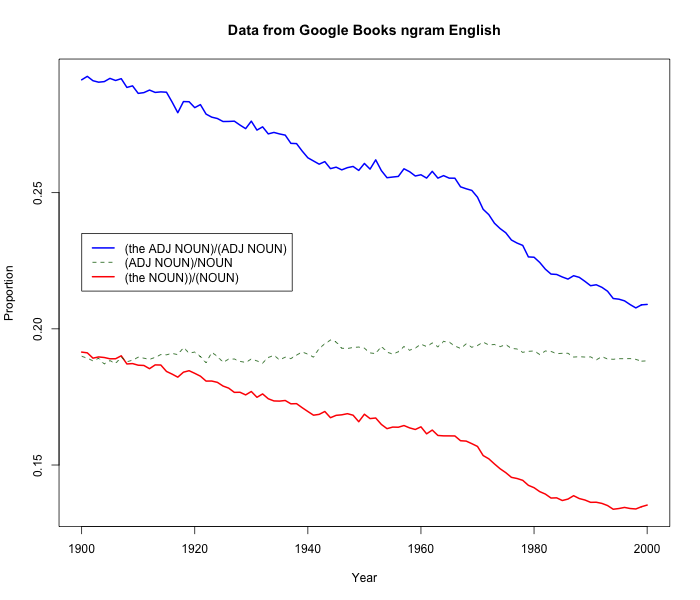Correlated lexicometrical decay
This is a brief progress report on "The case of the disappearing determiners", which I've continue to poke at in my spare time.
As the red line in the plot below shows, the proportion of nouns immediately preceded by THE decreased over the course of the 20th century, from an average of 18.9% for books published in 1900-1910 to 13.5% for books published in 1990-2000. The blue line shows that the proportion of adjective+noun sequences immediately preceded by THE was higher, overall, but followed a remarkably similar falling trajectory, from 29.1% in 1900-1910 to 21.2% in 1990-2000:
Read the rest of this entry »



